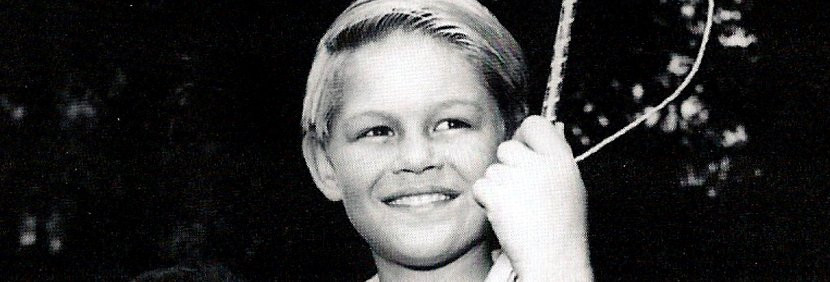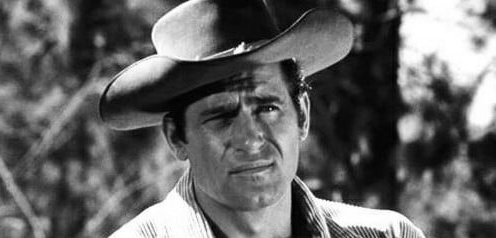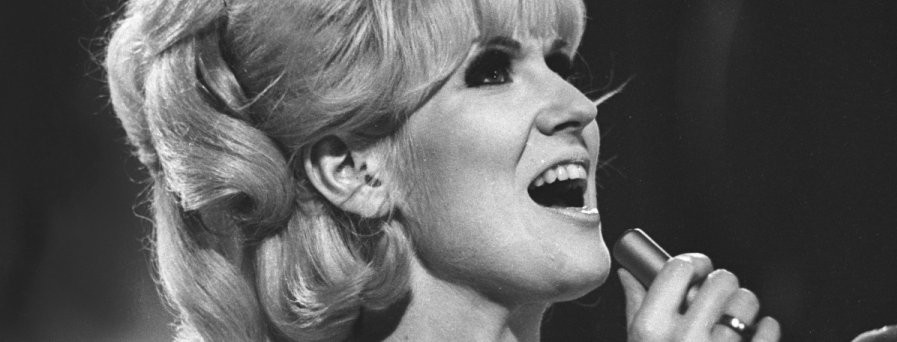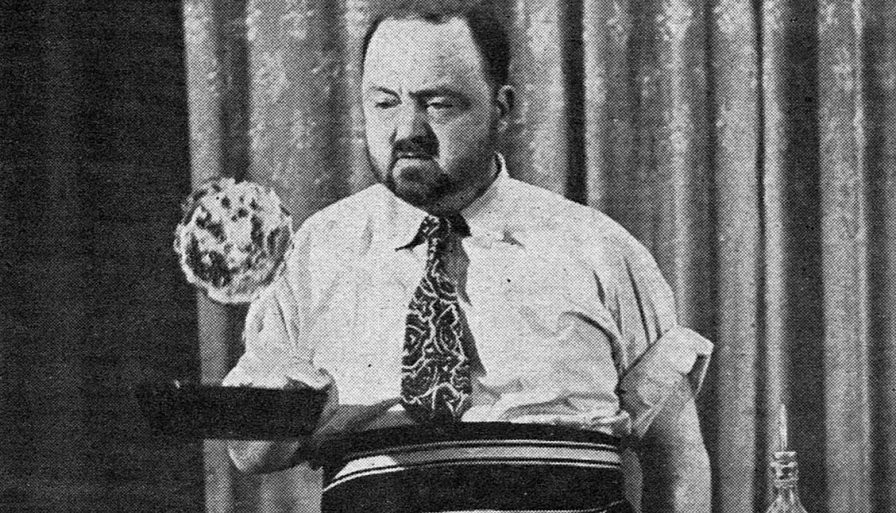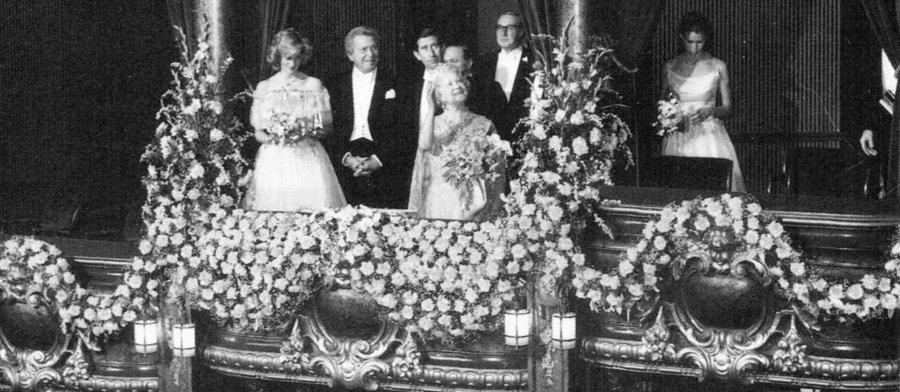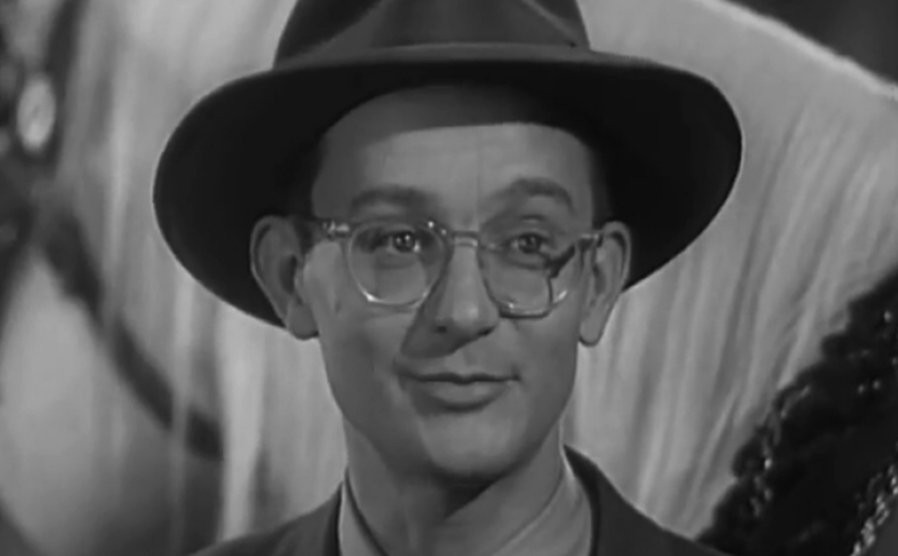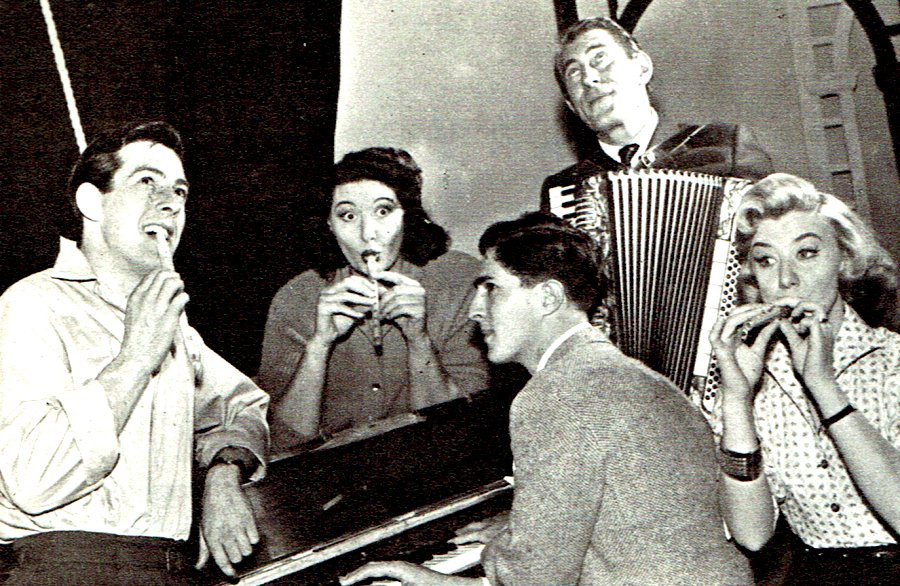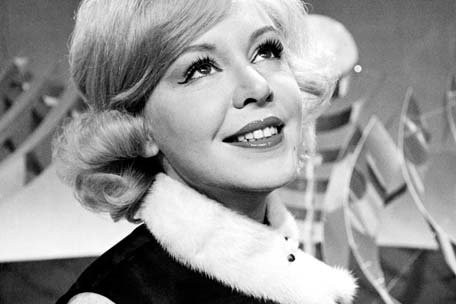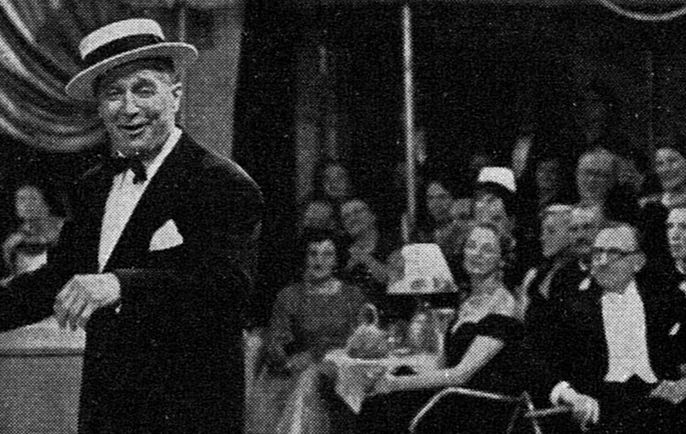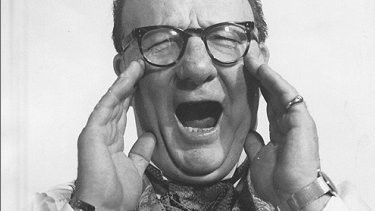
The Billy Cotton Band Show
1956 - United KingdomBig band, big sound and big big personality - with a rousing call of "Wakey-Wakey" followed by his signature tune "Somebody Stole My Gal", Billy Cotton introduced an inexhaustible 50 minutes of non-stop music, dancing and comedy in the essential weekend variety revue that was a stalwart of BBC programming for 12 years.
Born on 6 May 1899, in Smith Square, Westminster, William E. Cotton was the youngest of ten children. He learned to play the bugle in the Boy Scouts and in the autumn of 1914 joined the Army, volunteering for the London Regiment (Royal Fusiliers). The fact that he was only fifteen was overlooked by the authorities and Billy was dispatched to Malta as a drummer-bugler. Shortly afterwards he was sent to Gallipoli to take part in the doomed battle for the Dardanelle, landing in the middle of an artillery barrage with only his bugle for protection, until a marine threw him a rifle and some quick words of advice. He survived to remain on the front line for the rest of the year before being evacuated. His war record was exemplary and he earned his wings with the Royal Flying Corp, flying solo for the first time on the day that the RFC became the RAF.
An air crash through his own carelessness almost cost him his life and after four months in hospital he returned to civvy street. Turning to showbiz he joined a music hall act as part of an acrobatic group but at the same time he tried his hands (or feet) at football, playing for Brentford in what was then the Third Division. His nephew, Laurie Johnson, got Billy a few jobs with some local bands playing the drums. He was still only eighteen. To subsidise his income he worked as a bus conductor and with his wages bought himself the best set of drums he could afford. In 1924 Laurie won a contract to play every night at the Wembley Exhibition but one night, unbeknown to Bill, his boss at the bus depot went to see the band and recognised Bill who was sacked by the bus company the next day. Fortunately, Bill had heard of an audition for the Gaumont cinema circuit and persuaded Laurie and three others to try out for the gig. They were offered an engagement in Brighton and Bill found himself, in 1925, with his first band which he called the London Savannah Band. They took on other musicians and began playing the circuits (although Laurie Johnson left to lead his own band) all the while Bill was developing his style and learning how to build a rapport with his audience.
In 1929 Bill made his first radio broadcast and soon picked up a huge following. He would often perform the radio show for up to an hour and a half and between musical pieces he'd slip in the odd gag. Bill became the expert showman but still had time for sport and was bitten by the motor racing bug. By 1938 he had driven off from Brooklands with no fewer than eight trophies.
When the Second World War broke out most of his band were taken by the Armed Forces but Bill, at the age of forty, was not due for call-up. But within a few months he had signed up and sent off to France with the Royal Air Force. However, the War Office soon discovered that Bill was more valuable to them behind the front, boosting morale with his clowning form of entertainment and music. With composite bands and countless stars he became part of ENSA, touring campaign areas and blitzed cities everywhere. Following the Second World War, Bill was constantly touring and doing radio specials before being offered a Sunday morning radio show by the BBC. The band arrived for their first broadcast on 6th March 1949, the day after a concert in Sunderland and following a particularly long and uncomfortable all-night train ride. Following a 7am rehearsal Bill entered the studio a few moments before the live transmission at 1030am to find most of his band half asleep. He later explained what happened next: "Oi, come on," I said. "Wakey-Wakey!" It worked, and everyone got so cheerful that the producer said that we could well start the show with it."
The Sunday morning band show was a great success and Bill made a few sporadic appearances on BBC television. But his agent was Leslie Grade, brother of Lew Grade a leading board member of the Independent Television Company ITC, so when Commercial Television started in 1955 it was only natural that ITV would offer Bill his first series. But Bill wasn't happy with the shows or the format believing his band to be under-rehearsed and the shows to be far too elaborate. The shows he did for ATV in November/December 1955, Saturday Showtime, (preceded by a one-off special, Wakey Wakey) proved to be his only ones for the network and Bill returned to the BBC signing a three year radio and television contract at a restaurant in Shepherds Bush on the back of a paper napkin.
The first BBC series went out on 29th March 1956 under the title of Wakey Wakey! Billy Cotton also briefly hosted the variety series The Tin Pan Alley Show, although he was not very happy with this series which he saw no more than a "limbering up" for his main series. Ronnie Waldman, the BBC's Head of Light Entertainment, introduced Billy to Brian Tesler who had been working under Waldman's wing for four years at the BBC. Tesler was to be producer of The Billy Cotton Band Show and in order to transfer the winning formula that had so entertained Bill's adoring audience for years he went along to watch one of the music hall gigs. "(I) saw what a vibrant show he put on with the band and singers." Said Tesler. "It was boisterous, and very funny. As I watched the band on stage I could see ways in which we could use their production numbers for television. Then I thought we could bring in dancers to dance with Bill. He could obviously do little routines, and the juxtaposition of this large man - who, like many large men, was capable of delicate and dainty movements - with a bunch of beautiful and glamorously dressed showgirl dancers would obviously be very appealing. And it was."
The dancers, a line of 12 dancing girls, were named the Silhouettes. The BBC used a technique, still relatively new in those days, called overlay and inlay. This technique created a special effect in which you take a person's silhouette and fill it with anything you want, like newsprint, or clouds or whatever. "It was a technique I developed at the BBC, it was very effective, and that's why we called the girls the Silhouettes." Said Tesler. The series also launched careers, including Russ Conway (who was awarded his own BBC television series in 1960), Mrs. Mills, Ted Rogers and Roy Hudd, the first three becoming regulars or semi-regulars following their first appearance. Other Band Show regulars included Alan Breeze, Kathie Kay and Doreen Stephens. Guest stars ranged from homegrown stars such as Alma Cogan and Frankie Vaughan to international stars like Jane Mansfield and Bob Hope and through the years up-coming stars the likes of Cilla Black and Sandie Shaw also appeared.
Billy Cotton was presented with an Ivor Novello award in 1959 and voted Show Business Personality of the Year in 1962. The series never witnessed a decline in popularity, with only Bill's death from a heart attack on 25th March 1969 bringing it to a close. By that time the producer of the show was Bill Cotton junior. Bill's son, a rising star within the BBC who would one day become Managing Director of the Corporation. The final show (retitled since 1965 as Billy Cotton's Music-Hall) was transmitted on 20th July 1968. Bill Cotton junior once summed up his father's life as having "spanned the halcyon days of the big band, and continued beyond that time, surviving by blind faith and courage and the ability to take life by the scruff of the neck and make it do what he wanted." A fitting tribute to the man once dubbed by the Variety Club of Great Britain as "Mr Show Business."
(Reference: The Greatest Billy Cotton Band Show by John Maxwell published by Jupiter Books 1976.
Hulton's Television Annual published 1957).
Published on November 30th, 2018. Written by Laurence Marcus (January 2010) for Television Heaven.


